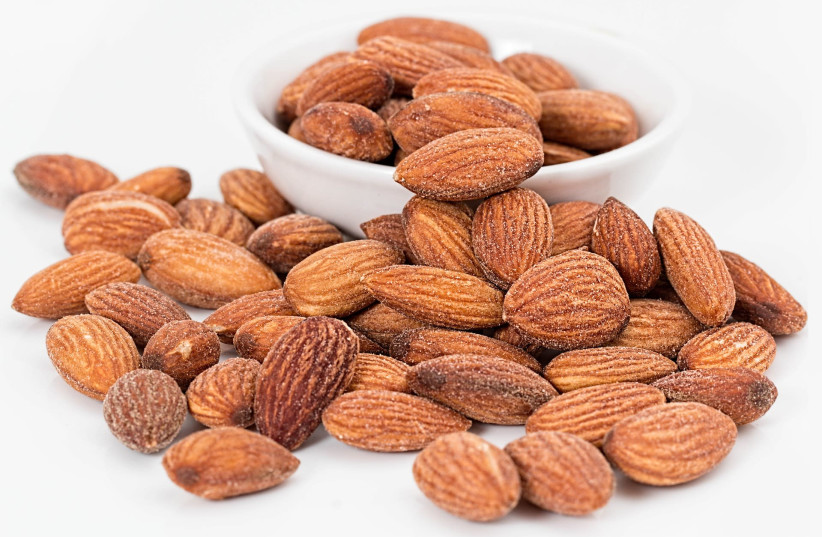With nuts, there are numerous ways to enjoy them, whether it’s salty, unsalted, savory, plain, raw or roasted. They can be enjoyed by being made into nut butter, or chopped and sprinkled on food. The best thing about them is that they’re healthy for you in many ways. Nuts are rich in nutrients including unsaturated fatty acids, protein, fiber, vitamins, minerals and other healthy plant compounds.
Eating nuts regularly has been linked to many significant health benefits. We’ve published many studies over the years that showed how nuts are a delicious, healthy snack. And, here are the five best reasons to eat some every day.
1. Prevent heart disease and even cancer
An international group of researchers whose study was published in the journal BMC Medicine analyzed 29 studies that dealt with nut consumption and surveyed 800,000 subjects. Their findings have found dramatic benefits to eating nuts. They found that people who ate a handful of nuts (about 20 grams) a day, no matter what type, were 30% less likely to get heart disease compared to people who didn’t eat nuts at all.
These results have been supported by past research, but what researchers discovered was that nuts can help fight cancer. According to the study, those who ate a handful of nuts were 15% less likely to get cancer and 22% less likely to die prematurely than those who didn’t eat nuts daily. Also, those who ate nuts regularly reduced their risk of dying from respiratory diseases by half, and diminished their chances of developing diabetes by 40%.

2. Prevent dementia
A large-scale study found that eating nuts from age 40 onwards may help prevent dementia later in life. Researchers from the National University of Singapore followed nearly 17,000 people between 1993 and 2016, and first assessed their diet and later their cognitive function.
They found that people who started eating nuts in their 40s twice a week or more were one-fifth less likely to have memory problems after age 60, compared to those who ate nuts less than once a month. The study, published in the journal Age and Ageing, also found that those who ate nuts once a week experienced almost the same benefit, as their risk was 19% lower for cognitive impairment in their 60s, 70s and 80s.
3. Good for sex life
Researchers also found that consuming 60 grams of nuts daily improves men's sexual function. Eating nuts increases sexual desire and even improves orgasm quality.
For the study, researchers in Spain conducted a nutritional intervention study with healthy participants of childbearing age (18-35) to determine if eating nuts consistently affects sexual function. For 14 weeks, they analyzed 83 people who followed a Western diet that was low in fruits and vegetables yet rich in animal fats. Participants were divided into two groups and told to continue with their normal diet. In just one group, 60 grams of nuts were added for men, which included 30 grams of walnuts, 15 grams of almonds and 15 grams of hazelnuts. At this time, researchers measured waist circumference, blood pressure and sperm quality. Participants were asked to complete a questionnaire describing their sexual function and performance in bed during the study.
Findings showed that the group that ate nuts didn’t really have sex that lasted longer, yet these men reported higher sexual desire and better orgasms.
4. Helps maintain weight
A study by Harvard University found that increasing daily nut consumption can help with weight loss and prevent obesity. The study, published in the journal BMJ Nutrition, Prevention & Health collected and analyzed information on weight, nutrition, and exercise among three groups of people: 51,529 doctors and other health professionals ages 40 to 75;121,700 nurses ages 35 to 55 and 116,686 nurses ages 24 to 44.
For more than 20 years of follow-up, participants were asked to record their weight every four years, and how often in the previous year they ate a serving (28 grams) of nuts including peanuts and peanut butter. Their average weekly exercise routine including walking, jogging, cycling, swimming and even gardening was assessed every two years on a questionnaire.
The findings showed that increasing nut consumption by only half a serving (14 grams) per day was associated with a lower risk of gaining two kilos or more in any 4-year period. And an increase of half the daily dose in nut consumption was associated with a 15% lower risk of obesity.
5. Assist in prolonging life
Researchers at Harvard University reported that consuming five or more servings of nuts a week may provide the largest increase in life expectancy. Eating five or more servings of nuts weekly showed a 14% reduction in the risk of death from all causes. The study authors also found a 25% lower risk of death from cardiovascular disease, and a 1.3 year increase in life expectancy compared to people who never eat walnuts.
Eating two to four servings of nuts a week is also quite beneficial. The study found that it contributes to a 13% lower risk of death from any cause, a 4% lower risk of dying from heart disease and an increase in one year of life. Even if the rest of the diet needs improvement, study authors state that eating half a serving of walnuts a day can reduce the risk of death from any cause by 12% and the risk of developing heart disease by 26%.
